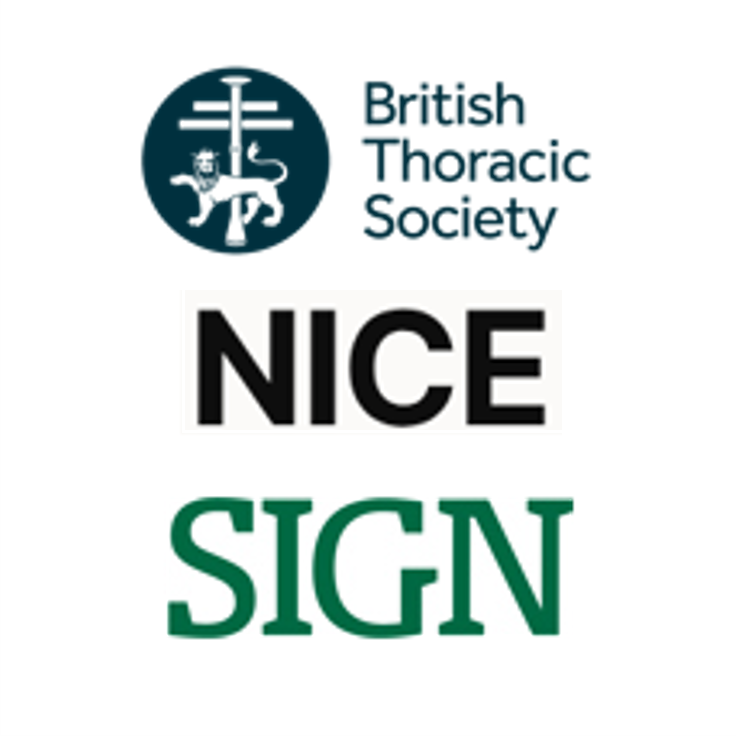Initial clinical assessment

This content is from the BTS, NICE and SIGN guideline - Asthma: diagnosis, monitoring and chronic asthma management (SIGN 245), 2024.
Clinical history
1.1.1 Obtain a structured clinical history in people with suspected asthma. Specifically, check for:
- reported wheeze, noisy breathing, cough, breathlessness or chest tightness, and any variation (for example, worse during the night or early morning, or seasonal) in these symptoms
- any triggers that make symptoms worse
- a personal or family history of asthma or allergic rhinitis
- symptoms to suggest alternative diagnoses (see the tables on clinical clues to alternative diagnoses in wheezy children and on clinical clues to alternative diagnoses in adults).
[NICE 2017, BTS/SIGN 2019, amended BTS/NICE/SIGN 2024]
1.1.2 Do not confirm a diagnosis of asthma without a suggestive clinical history and a supporting objective test. Code as suspected asthma until the diagnosis is confirmed.
[NICE 2017, amended BTS/NICE/SIGN 2024]
1.1.3 If the diagnosis of asthma is confirmed, record the basis for this in the person's medical records, alongside the coded diagnostic entry.
[NICE 2017, amended 2024]
Physical examination
1.1.4 Examine people with suspected asthma to identify expiratory polyphonic wheeze and signs of other causes of respiratory symptoms but be aware that even if examination results are normal, the person may still have asthma.
[NICE 2017]
Initial treatment and objective tests for acute symptoms at presentation
1.1.5 Treat people immediately if they are acutely unwell or highly symptomatic at presentation, and perform objective tests that may help support a diagnosis of asthma (for example, eosinophil count, fractional exhaled nitric oxide [FeNO], spirometry or peak expiratory flow [PEF] before and after bronchodilator) if the equipment is available.
[NICE 2017, amended BTS/NICE/SIGN 2024]
1.1.6 If objective tests for asthma cannot be done immediately for people who are acutely unwell or highly symptomatic at presentation, carry them out when acute symptoms have been controlled, and advise people to contact their healthcare professional immediately if they become unwell while waiting to have objective tests.
[NICE 2017, amended BTS/NICE/SIGN 2024]
1.1.7 Be aware that the results of spirometry and FeNO tests may be affected in people who have been treated with inhaled corticosteroids (the test results are more likely to be normal).
[NICE 2017]

![]()
![]()